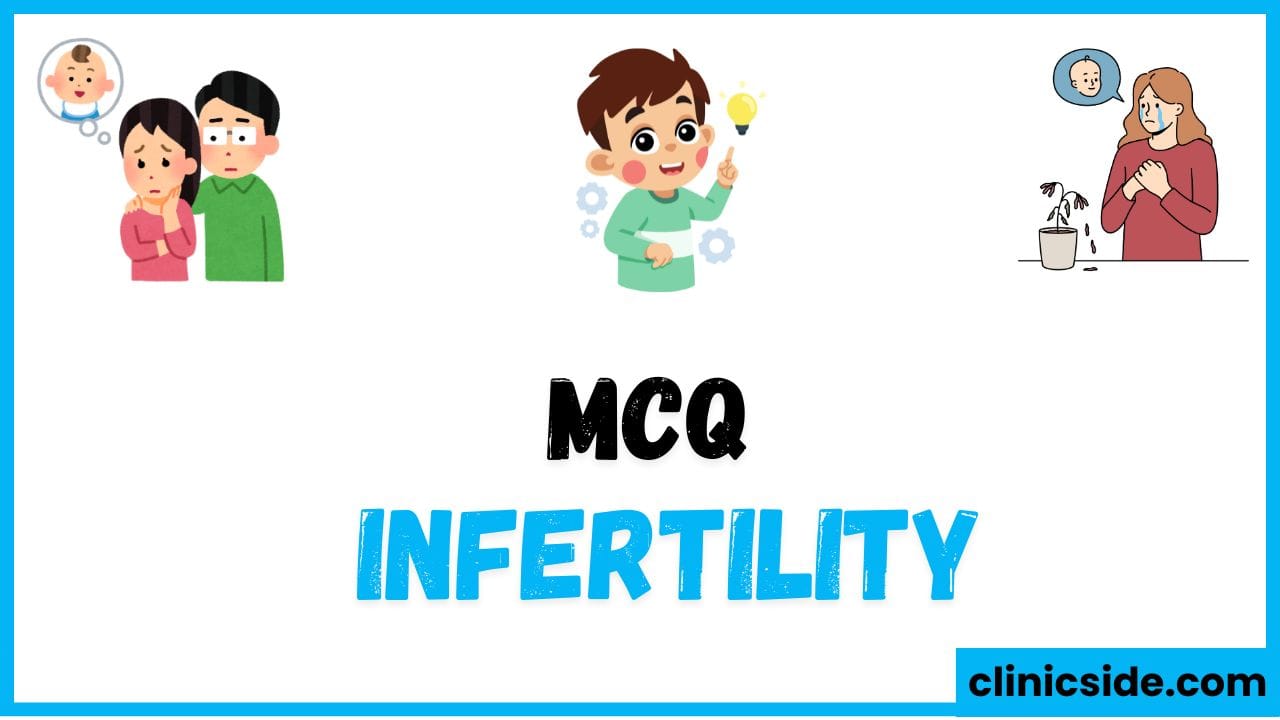Quiz
Available options: 1 to 20
Infertility:
Explore our comprehensive infertility quiz to test your knowledge and understand the factors that influence fertility in both men and women. Learn about causes, treatments, and lifestyle changes that can improve reproductive health. Whether you’re just starting to learn or want to deepen your understanding, this quiz will provide valuable insights.Explore our comprehensive infertility quiz to test your knowledge and understand the factors that influence fertility in both men and women. Learn about causes, treatments, and lifestyle changes that can improve reproductive health. Whether you’re just starting to learn or want to deepen your understanding, this quiz will provide valuable insights.
Causes of Infertility
Infertility can be caused by a wide array of factors, from hormonal imbalance and medical conditions to the use of certain lifestyle choices. The following are causes of infertility in women and men.
For Women:
Polycystic Ovary Syndrome (PCOS): This hormonal imbalance disrupts ovulation and creates problems with regular menstrual cycles, making it difficult to become pregnant. The other medical conditions may include the following:
Endometriosis is a disorder wherein tissue similar to the lining of the uterus grows outside of it; hence, this often affects the fallopian tubes and ovaries, which contributes to the inability to bear children.
Blocked Fallopian Tubes: When the tubes get blocked or damaged due to certain infections or previous surgeries, the sperm would not be able to reach the egg.
Thyroid Disorders: Both hypothyroidism and hyperthyroidism can cause issues with ovulation and overall reproduction.
For Men:
Low Sperm Count: One of the most prevalent causes is low sperm count. A low sperm count may be the result of your living style, genes or infections.
Varicocele: The swollen veins in the scrotum interfere with the production and quality of the sperms.
Poor Hormonal Secretion: Lower level of testosterone and other hormones interfere with the production of sperms.
Infertility: Common Treatments
Treatments for infertility vary widely depending on the underlying cause, everything from lifestyle changes to more complex medical interventions.
Lifestyle Changes: These may include stopping smoking, exercising on a regular basis, and keeping weight within a normal range.
Medications: Prescriptions for women may include medications such as Clomid to stimulate ovulation. Men can also be treated with hormone therapy, which often increases sperm production.
Intrauterine Insemination (IUI): This is the placing of sperm into the uterus to facilitate fertilization.
In Vitro Fertilization: This is the general treatment wherein an egg is fertilized outside of one’s body and transferred into the uterus. It is one of the most used methods when all others have been tried.
Age and Fertility
One of the most influencing elements in fertility is age. In most women, fertility begins to decline after age 35; in most men, fertility begins to decline slightly after age 40. It has something to do with the quality and quantity of eggs that a woman has, and with a decline over age in the quality of sperm in men.
Prevention and Tips to Enhance Fertility
While all causes of infertility are not preventable; certain lifestyle modification can promote healthy reproductive health:
Healthy Diet: A nutritious diet with vitamins, minerals, and antioxidants can promote healthy fertility.
Stress Management: Stress blocks hormone production and thus makes it difficult to conceive. Yoga, meditation, and relaxation techniques can help in dealing with the stress phenomenon.
Regular Exercise: This can be done through moderate exercise, which helps improve fertility by keeping weights in a healthy range and maintaining hormone balance.
When to Seek Help
It is suggested that women under age 35 seek help after one year of trying to conceive without success, and women over age 35, after six months of attempting to get pregnant. It’s also a good idea for men to seek evaluation regarding sperm count and quality.
If you want to gain more knowledge about infertility, Click Here
Test Guidelines and Time Limit For Quiz:
Guidelines for Maximizing Your Quiz Experience:
Read and Understand:
Carefully read each question related to Infertility and ensure you have a clear understanding of the concepts before selecting your answer. This will help you make informed choices and avoid misconceptions.
Choose the Best Answer:
Evaluate all available options before selecting the one that aligns best with your knowledge of Infertility for accuracy and relevance in your responses.
Time Management:
The quiz has a time limit based on the number of questions you choose. Allocate 45 seconds per question. Manage your time wisely to complete all questions within the allotted time.
Efficient time management increases your likelihood of successfully completing the quiz and submitting your answers within the designated timeframe. Best of luck!






